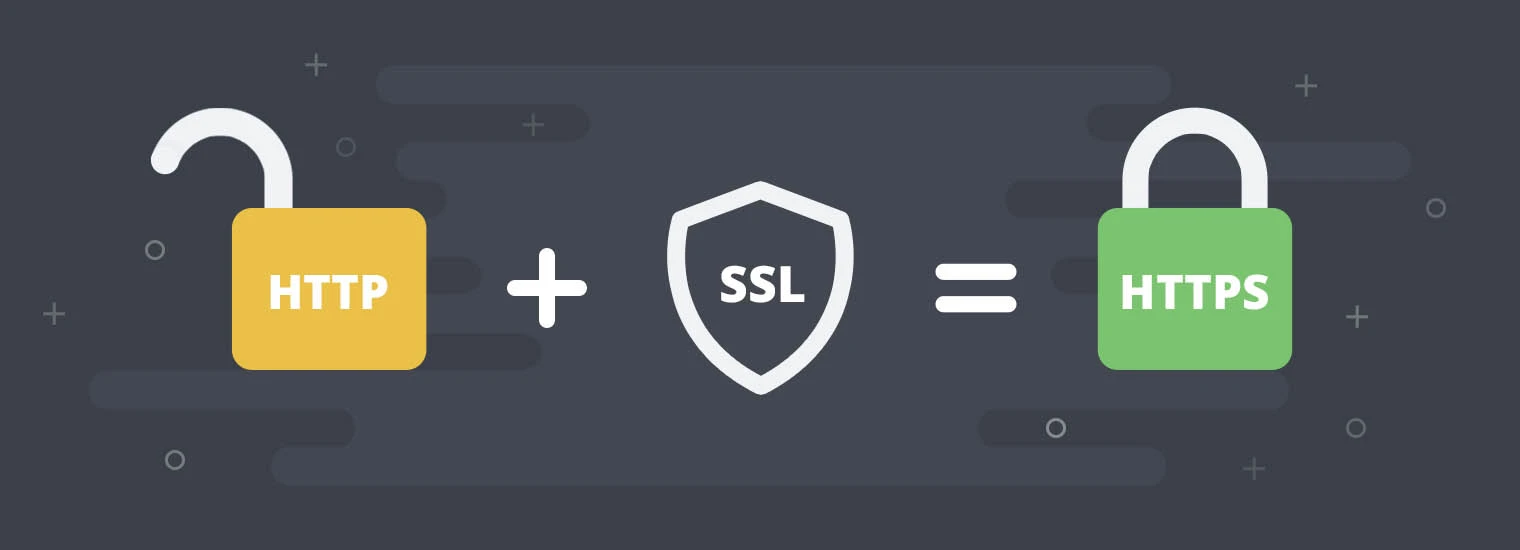Table of Contents
Understanding Your Options for Website Security: Best SSL Certificates Guide in 2024

Table of Contents
- 1Understanding Your Options for Website Security: Best SSL Certificates Guide in 2024
- 2What are SSL certificates used for?
- 3What are the different types of SSL certificates available?
- 4SSL 101: What you need to know before choosing a certificate
- 5Different SSL Certificate Types: Features, Pros & Cons
- 5.11. Domain Validation (DV) Certificates:
- 5.22. Organization Validation (OV) Certificates:
- 5.33. Extended Validation (EV) Certificates:
- 5.44. Wildcard Certificates:
- 5.55. Multi-Domain (SAN) Certificates:
- 5.66. Single-Name Certificates:
- 5.7Exploring Advanced SSL Certificate Options
- 5.8Protecting Your Website and Visitors: Why You Need an SSL Certificate in 2024
In today’s digital landscape, securing your website is of utmost importance. With cyberattacks and data breaches on the rise, protecting your website has never been more important. However, with so many different types of SSL certificates to choose from, it can be overwhelming to determine which one is the best fit for your website’s needs.
They are a vital component of website security, but with so many options available, it can be overwhelming to know which one will suit your needs best. Whether you’re managing a small blog or running a large E-commerce site, it’s essential to understand the different types of SSL certificates available to you. In this comprehensive guide, we will explore these options in-depth, discussing their features and the benefits they offer. By the end, you’ll have the knowledge to make an informed decision and ensure the security of your website well into 2024 and beyond. So, let’s begin by delving into the significance of SSL certificates.
What are SSL certificates used for?
SSL certificates are used to establish a secure and encrypted connection between a website and its visitors. They play a critical role in ensuring the confidentiality, integrity, and authenticity of data transmitted over the Internet.
One of the primary purposes of SSL certificates is to protect sensitive information, such as login credentials, credit card details, and personal data, from being intercepted by malicious actors. By encrypting the data exchanged between a user’s browser and the website, SSL certificates prevent unauthorized access and eavesdropping.
In addition to data encryption, SSL certificates also serve as a trust indicator for website visitors. When a website has a valid SSL certificate, it displays a padlock icon or a green address bar, indicating that the connection is secure. This visual cue instills confidence in users, assuring them that their information is safe and reducing the risk of phishing attacks.
Furthermore, SSL certificates are essential for complying with legal and industry regulations. Many organizations are required to have SSL certificates in place to protect customer data and maintain regulatory compliance.
In summary, SSL certificates are used to safeguard sensitive information, establish trust with users, and meet security standards. They are a fundamental aspect of website security, ensuring that data remains confidential and secure during transmission.
How do SSL certificates work

SSL certificates work through a process that involves encryption and authentication.
When a user visits a website with an SSL certificate, their browser initiates a secure connection with the website’s server. This is done by the browser requesting the server to present its SSL certificate.
The process remains the same regardless of the specific type of SSL certificate being used. However, it’s important to note that different types of SSL certificates offer varying levels of validation conducted by the Certificate Authority (CA) before issuing the certificate. This validation process impacts the level of trust and security conveyed to users.
Next, the encrypted session key is sent back to the server. The server uses its private key to decrypt the session key, allowing both the server and browser to establish a secure connection. This connection is now encrypted, ensuring that any data transmitted between the server and browser remains confidential and protected from unauthorized access.
SSL certificates also provide a means of authentication. They include information about the entity that owns the certificate, such as the website’s domain name and the organization’s details. This helps users verify the legitimacy of the website they are visiting, as the SSL certificate is issued only to authorized entities.
In conclusion, when it comes to the types of SSL certificates, they work by encrypting communication between a user’s browser and a website’s server, ensuring data privacy. They also provide authentication, verifying the identity of the website owner. By combining encryption and authentication, different types of SSL certificates play a crucial role in establishing secure connections on the internet.
What are the different types of SSL certificates available?
There are several different types of SSL certificates available, each designed to suit different needs and requirements.

SSL 101: What you need to know before choosing a certificate
In today’s digital world, website security is paramount. This is where SSL certificates come in, acting as the digital guardians of your online presence. However, with various options available, choosing the right types of SSL certificates can feel overwhelming. Also, it is very important to pay attention to the following:
Beyond Validation: Additional Considerations
While validation is crucial, other factors come into play:
Number of Domains: Do you need a certificate for a single domain, multiple domains (multi-domain), or even subdomains (wildcard)?
Features: Some certificates offer additional features like malware scanning or site seal displays.
Price: Prices vary depending on the validation level, features, and certificate provider.
The Final Choice: Picking Your Perfect SSL Certificate
Carefully consider your website’s purpose, the level of security required, and your budget when selecting the right type of SSL certificate. Here’s a quick guide:
Personal websites or blogs: A Domain Validation (DV) certificate might suffice.
Business websites: An Organization Validation (OV) certificate offers a good balance of affordability and trust.
E-commerce websites or those handling sensitive data: Invest in an Extended Validation (EV) certificate for maximum security and customer confidence.
Remember, choosing the right type of SSL certificate is an investment in your website’s security and reputation. By understanding the options and factors involved, you’ll be well-equipped to make an informed decision and keep your online space safe and secure.
Different SSL Certificate Types: Features, Pros & Cons
While protecting your website with an SSL certificate is crucial, navigating the different types of SSL certificates can be confusing. This guide breaks down the main SSL certificate options, highlighting their features, advantages, and drawbacks, empowering you to choose the perfect fit for your website.
1. Domain Validation (DV) Certificates:
Features: Most affordable, basic validation of domain ownership.
Pros: Quick and easy to obtain, cost-effective.
Cons: Provides minimal trust indicators, not ideal for sensitive data or transactions.
2. Organization Validation (OV) Certificates:
Features: Validates the organization behind the website and displays company details.
Pros: Offers moderate trust level, suitable for building trust with customers.
Cons: More expensive than DV certificates, requires some verification paperwork.
3. Extended Validation (EV) Certificates:
Features: The most rigorous validation process displays a green address bar and company name.
Pros: The highest level of trust and security, ideal for e-commerce and sensitive data.
Cons: The most expensive option involves a lengthy and detailed verification process.
4. Wildcard Certificates:
Features: Secures multiple subdomains under a single domain (e.g., secures “blog.example.com” and “shop.example.com” with “.example.com”).
Pros: Cost-effective for securing multiple subdomains and simplifies certificate management.
Cons: Requires managing and renewing a single certificate for all subdomains.
5. Multi-Domain (SAN) Certificates:
Features: Secures multiple individual domains and subdomains within a single certificate.
Pros: Ideal for organizations with multiple websites or services under different domains.
Cons: It can be more expensive than wildcard certificates, depending on the number of domains.
6. Single-Name Certificates:
Features: Secures a single domain or subdomain.
Pros: Most affordable option for single-domain websites.
Cons: Not suitable for websites with multiple subdomains or domains.
Choosing the Right Certificate:
Consider these factors when choosing:
Website purpose: E-commerce needs EV, while blogs might do well with DV.
Budget: Costs vary based on validation level and features.
Number of domains: Wildcard, Multi-Domain, or Single-Name, depending on your needs.
Remember, the right SSL certificate is an investment in your website’s security and user trust. By understanding the features, pros, and cons of each type, you can make an informed decision and protect your online space effectively.
Exploring Advanced SSL Certificate Options
Go beyond basic encryption and delve into the world of advanced types of SSL certificates. Explore Wildcard certificates securing multiple subdomains, or Multi-Domain certificates for diverse websites. Discover options like Organization Validation (OV) for building trust or Extended Validation (EV) for displaying the coveted green address bar. Uncover the ideal type of SSL certificate to safeguard your online presence and instill confidence in your visitors.
Protecting Your Website and Visitors: Why You Need an SSL Certificate in 2024
Imagine your website as a fortress guarding valuable information. In today’s digital landscape, an SSL certificate acts as the moat and drawbridge, securing your site and visitors from online threats. Gone are the days of optional security; in 2024, an SSL certificate is essential.
SSL certificates encrypt data transmission, preventing prying eyes from stealing sensitive information like passwords or credit card details. They also authenticate your website, ensuring visitors aren’t interacting with imposters.
With various types of SSL certificates available, from Domain Validation (DV) to Extended Validation (EV), you can choose the level of trust and security that best suits your website’s needs. Investing in an SSL certificate is not just about protecting your data; it’s about building trust and fostering a secure online environment for your visitors.
